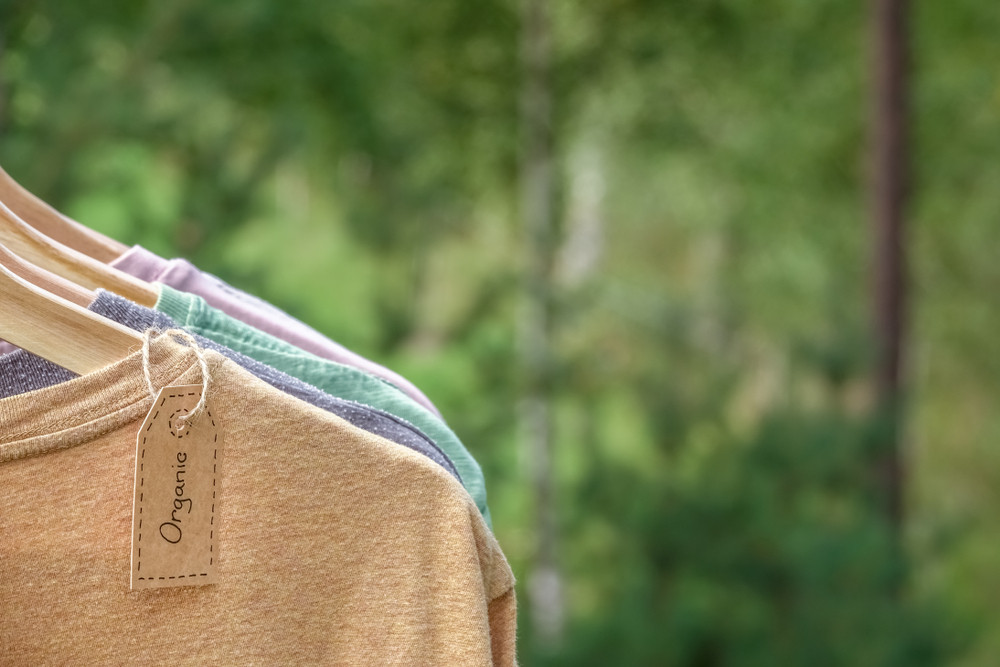Popular Reads
Top Results
Can't find what you're looking for?
View all search resultsPopular Reads
Top Results
Can't find what you're looking for?
View all search resultsContemplating the high price of ethical fashion
Change text size
Gift Premium Articles
to Anyone
W
hile the idea of ethical fashion is becoming increasingly popular, it has been reported globally that few are willing to pay the price.
A survey conducted for Asia’s Sustainable Fashion Summit 2019, found that 60 percent of participants would only buy ethical fashion if it had the same price as fast fashion. Therefore, the real question is: will ethical fashion ever be sold at a price that doesn’t break the bank?
Christine Lafian founded her ethical brand, SUKU Home, with the idea that craftspeople needed to be treated fairly and given time to create their pieces. Having grown up in Bali, she established her studio in her home community to enable locals to craft sustainable fashion and household wares.
One of the biggest challenges for Christine is having to compete with companies that rely on mass-production and the use of cheaper fabrics. As sustainable fabrics such as bamboo and linen are derived from plants, they often cost more to produce than the typical synthetic fabrics of fast fashion.
Although the designer thinks ethical fashion can work to become more affordable, she wants people to know over-consumption would result in excess and that was where the real problem lay. “We’re so used to the mentality that you can consume without thinking about the future. If everyone changed their mindset, it would change all industries, not just fashion.”
SukkhaCitta chief operational officer Bertram Flesch also believes mass consumption is a core problem for the fashion industry.
“[Fast fashion] seems so affordable, so you just keep buying things, and a lot of your wardrobe you don’t even wear,” Bertram said.
Read also: Viscose may give Indonesia's textile industry edge in sustainability
According to a study conducted by YouGov, 3 in 10 Indonesians have thrown away clothes after wearing them only once.
Founded by Bertram’s wife, Denica in 2016, SukkhaCitta dedicated itself to making garments in a sustainable, environmentally conscious manner while ensuring their workers made a living wage. The company is also a social enterprise, with a portion of the profit made from each garment being used to build craft schools in the villages in which the company operates.
Bertram says SukkhaCitta, like many other ethical brands, makes garments that cost more as they are created to show customers that what they are buying rivals the underpriced and decaying quality of fast fashion. “If you buy something from a fast fashion company and the cost per wear is US$5, you wear it twice and it costs you $10, but then you buy a shirt for $100 and you wear it 20 times, it ends up being the same."
Bertram also stressed the importance that the price tag should reflect environmental costs, health hazards and exploitation – or lack thereof. “The fact remains that fast fashion in its current, tremendously unsustainable form is too cheap as its prices do not reflect the true cost.”
One factor emphasized by both Christine and Bertram is that the attitudes of consumers must change in order for ethical fashion to ever be made at a more affordable price.
However, for a large portion of Indonesians, spending big on ethical fashion isn’t always viable. According to CEIC Data, in 2019 the average monthly income for Indonesians was $183. With some brands charging $250 per garment, ethical buying can be prohibitively expensive.
As a consumer and producer of ethical fashion, Fransiska Anggraini understands that price sensitivity can be problematic for some, but suggests there are ways to work around it.
“Nowadays, wearing pre-loved items is no longer a shame. There are online fashion shops specializing in selling second-hand stuff, and they’re doing really well,” she said.
Fransiska also suggested giving away unloved clothing, attending garage sales and participating in local clothes-swapping events, which enforce the idea that as long as we’re not buying fast-fashion, hopefully it will move out of the mainstream, putting ethical fashion in the spotlight. Through this hoped-for transition, Bertram believes companies will become more innovative in their means of production, leading to lower prices in the long term. (kes)
__________
Madison Bogisch traveled to Indonesia under a program with ACICIS Study Indonesia.










